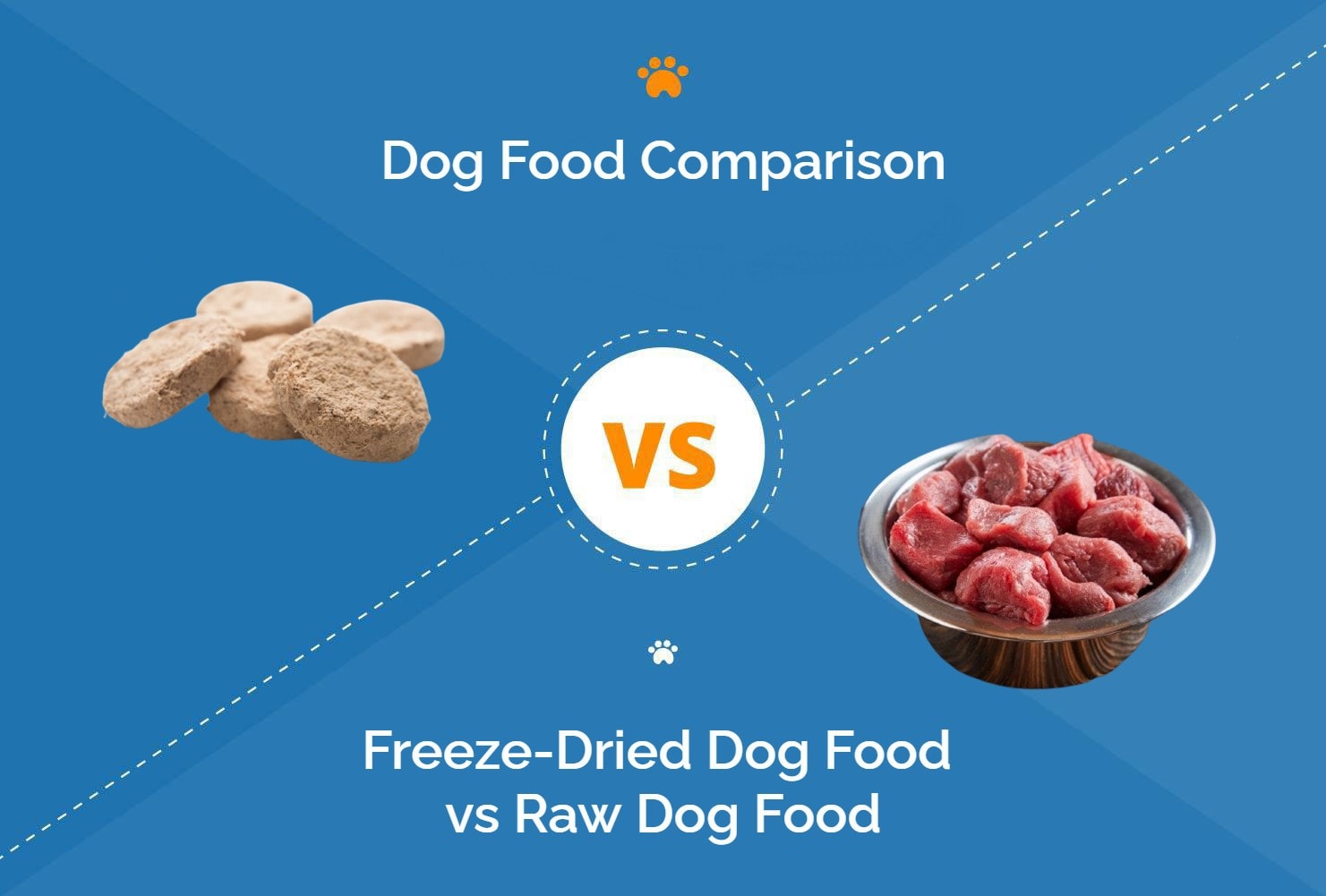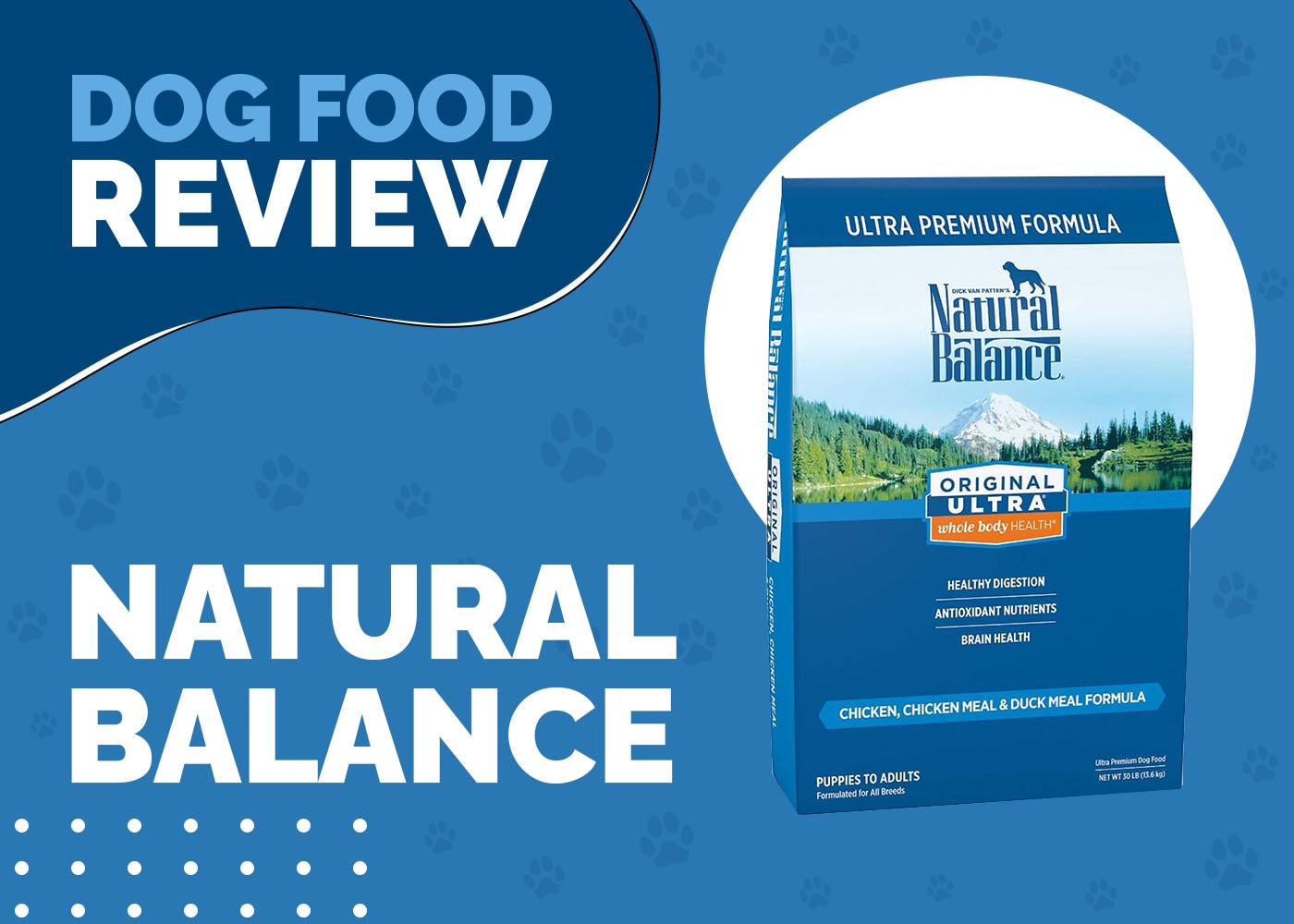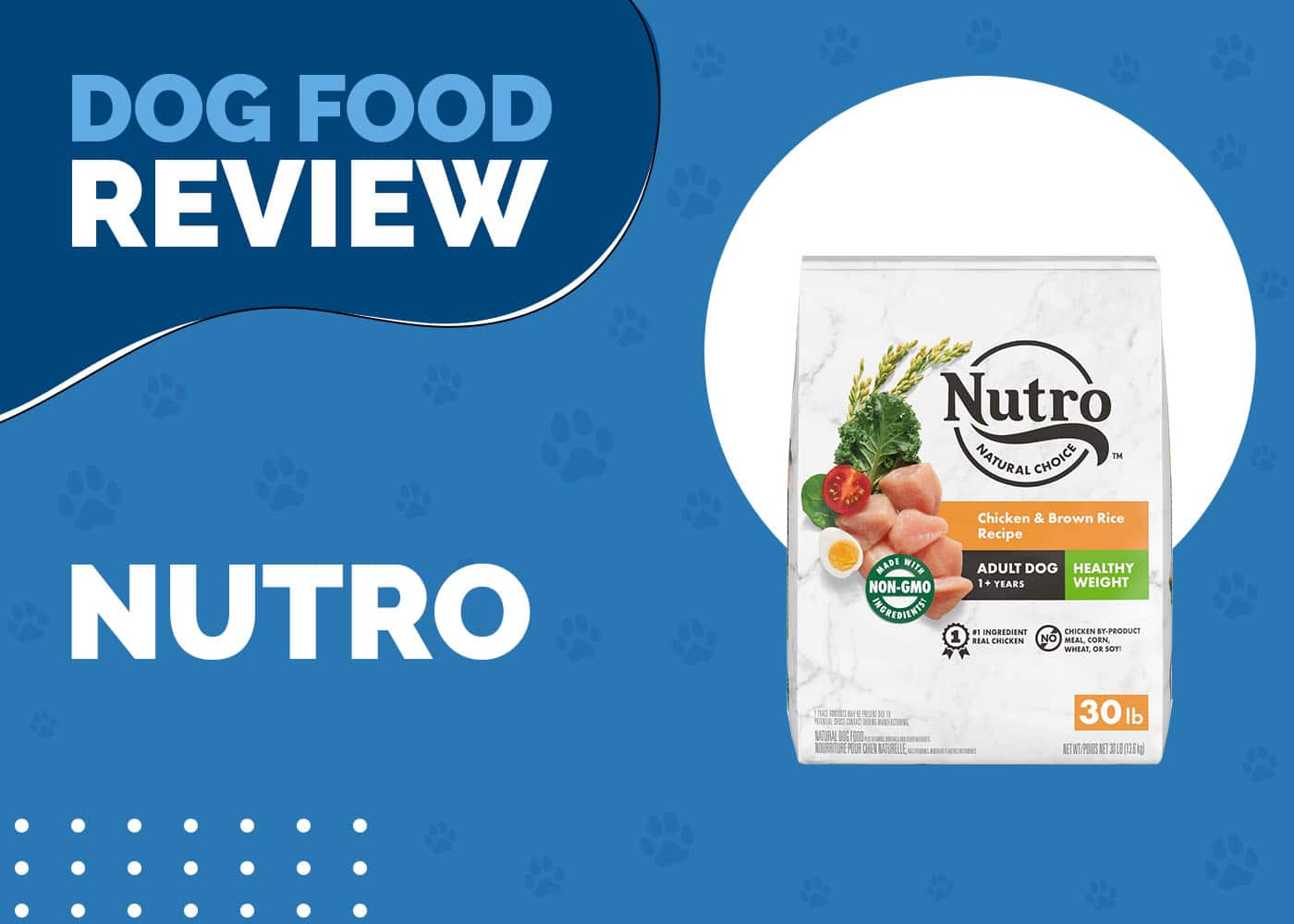Can Dogs Eat Carrots? Vet-Approved Facts & FAQ

Updated on

We all know that bunnies looove carrots, but what about your dog? Packed with potassium, antioxidants, essential vitamins, fiber, and other nutritious goodies, carrots are super veggies that can boost the immune and digestive system, help lower blood cholesterol, and promote wound healing.
Luckily, your dog can enjoy the same healthy perks that come with consuming carrots.
So, can dogs eat carrots? Yep! And that’s not the only good news. Let’s explore the health benefits carrots have for dogs and the best ways that you can dish them out to your pooch.
Can Carrots Benefit Your Dog’s Health?
Now that you know that your dog can safely ingest carrots, let’s look at some of the benefits that come along with a diet that includes this vegetable for your doggy.
As we said previously, carrots are jam-packed with fiber, vitamins, and antioxidants. Some of these ingredients are essential for a flourishing, thriving canine. For dogs, Vitamin A is critical for their overall health and can aid in a boosted immune system, development, reproduction, bone growth, and cellular differentiation.1
Not only that, but these low-fat, low-calorie treats can also help support your dog’s vision, maintain satisfactory chewing skills that could help with relieving boredom and anxiety, and ensure regular bowel movements and a healthy immune system.
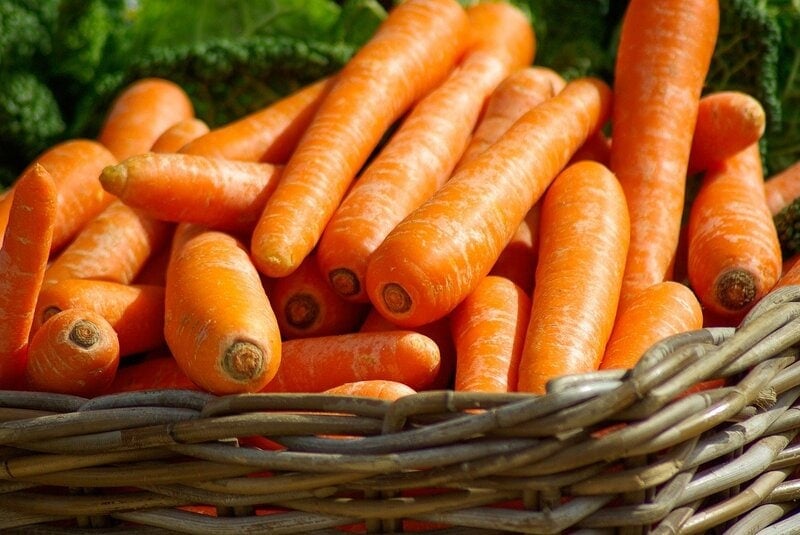
When Can Carrots Be Bad for Dogs?
If you feed your dog carrots in moderation, they can be an ideal addition to their diet. However, as with other fruits and vegetables, carrots carry natural sugar. This is why dogs (and people) find them so irresistibly good. Despite its sinfully sweet taste, too much natural sugar long term may lead to excessive weight gain, which, in turn, can lead to other serious health conditions, such as joint, breathing and heart disease.
The amount of carbohydrates in a raw carrot is 9.58 grams per 100 grams. Carrot also has a fairly low glycaemic index, 16 when raw, and 32 to 49 when boiled. This is a measure on how much some foods raise blood sugar levels, on a scale of 1 to 100. A score of 100 means the food has the same effect on your body as eating glucose itself. So when cooking the carrot, the carbohydrate content increases moderately and this should be considered.
Too many treats that contain a lot of sugar over a prolonged time, alongside other risk factors, may also predispose doggie dental decay. Unlike specifically formulated dental kibble and special treats recommended by the Veterinary Oral Health Council and regular brushing, all of which can help maintain oral hygiene and reduce plaque and tartar build up, carrots won’t significantly help clean your dog’s teeth.
How Many Carrots Can I Feed My Dog?
Carrots and other human foods should be given to dogs in moderation and based on your vet’s recommendation. An average-sized pup can safely consume a few slices of carrot per day. You should chop the carrots up into smaller pieces to avoid the risk of your pet swallowing them whole and choking. Some dogs are terrible at trying to swallow just about anything. Supervise your pooch when you offer carrot slices for the first time. Although it is rare, if smaller dogs in particular swallow a very large piece of carrot without chewing it through, this may lead to an obstruction of the stomach or intestine and will need prompt veterinary attention. All treats you offer to a dog should not make up more than 10% of their total daily food intake.
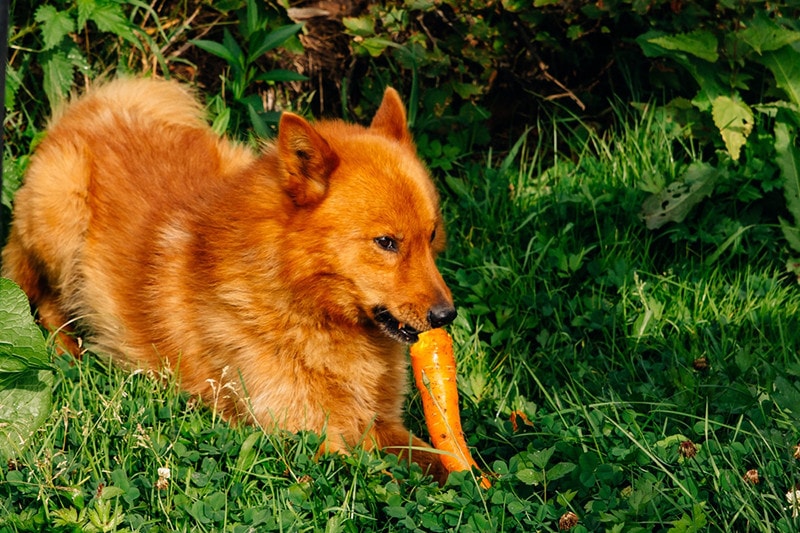
How to Serve Your Dog Carrots
Before introducing new food to Fido, always check with your vet to get their recommended serving size. Also, you should proceed carefully when incorporating any new foods into your dog’s meals. Like us, your pet can suffer from some serious food allergies. If you notice skin irritation, itching and scratching, vomiting, and diarrhea, take him to your local vet clinic for a check up.
While your dog may love the crunchy texture and sweet flavor of raw carrots, you can also try giving cooked carrots to him too. If you’re concerned that cooking the veggie will reduce its nutritional value, opt for steamed carrots instead.
The 4 Reasons You Should Feed Your Dog Carrots
Still not convinced? Here are four more reasons to feed your pooch carrots!
- They’re easy to grow: Carrots are one of the simplest foods to grow in your own backyard.
- They’re affordable: Save some money by feeding your dog a baby carrot instead of high-priced supplements.
- They make excellent Kong stuffers: Low in fat and mighty in taste, your dog will be entertained for hours trying to get the chopped-up carrots out of his Kong chew toy!
- Simple to prepare: All you have to do is chop ‘em up and give them to your dog.
Final Thoughts
Yes, your dog can definitely have some carrot, but only in moderation. Not only does this tasty vegetable help with their digestive and immune system functions, but it’s good for your dog’s overall health.
Featured Image Credit by: mali maeder, Pexels



